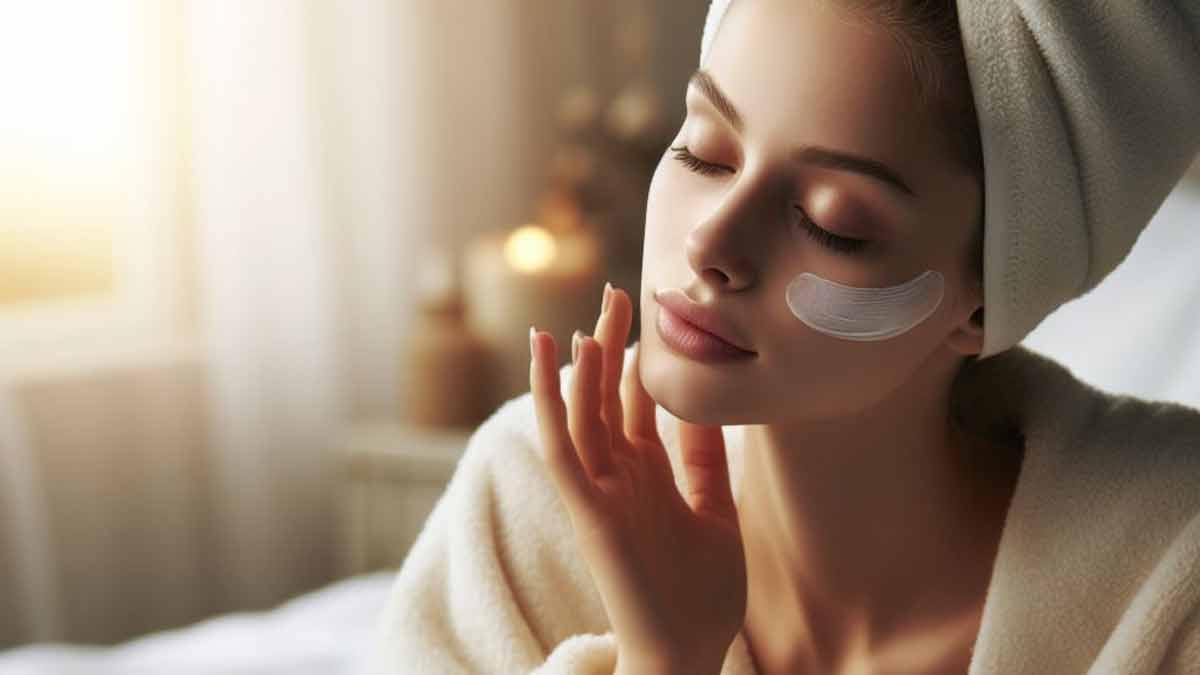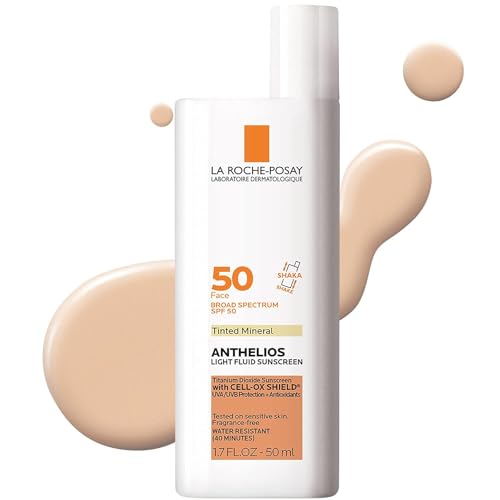Sunscreen isn’t just a summer staple; for those with rosacea, it’s a critical aspect of daily skin care. Studies have consistently shown that ultraviolet (UV) rays can exacerbate rosacea symptoms, intensifying both redness and irritation.
The National Rosacea Society emphasizes the importance of sun protection as part of managing this condition. Selecting the correct sunscreen for sensitive, rosacea-prone skin, however, can be a daunting task.
More from Glowing Gorgeous: Find out here the Best Silicone-Free Moisturizers And Why Do You Care
Chemical sunscreens, while popular, can sometimes provoke more irritation, making mineral sunscreens a safer bet for many. With a multitude of options available, finding a sunscreen that offers broad-spectrum protection without aggravating sensitive skin requires understanding not only the type of sunscreen but also the active ingredients that benefit rosacea. So, is your sunscreen doing enough to protect and soothe your rosacea-prone skin?
Glowing First Glimpse
- Yes, your sunscreen can do more for your rosacea-prone skin by choosing formulas with zinc oxide or titanium dioxide.
- Mineral sunscreens with an SPF of 30 or higher provide the best protection and least irritation for rosacea sufferers.
- Top sunscreen for rosacea is La Roche-Posay Anthelios Mineral Tinted Sunscreen
- Applying the correct amount and reapplying every two hours, especially after swimming, ensures optimum sun protection.
- For additional protection, consider wearing hats and seeking shade during peak UV exposure times.
Rosacea and Sun Sensitivity
Rosacea is a chronic skin condition characterized by facial redness, swollen red bumps, and small visible blood vessels. Common triggers include hot drinks, spicy foods, extreme temperatures, and notably, sun exposure. In fact, the National Rosacea Society cites sun exposure as a top trigger for rosacea flare-ups, contributing to increased visibility of blood vessels and severe redness. The detrimental effects of UV rays on the skin, particularly for rosacea sufferers, can exacerbate symptoms and lead to accelerated skin aging and even skin cancer.
Chemical vs. Mineral Sunscreen for Rosacea
Understanding the difference between chemical and mineral sunscreens is crucial for those with rosacea. Chemical sunscreens absorb UV radiation, while mineral (or physical) sunscreens reflect these harmful rays away from the skin.
Mineral sunscreens, containing zinc oxide or titanium dioxide, are often recommended for those with rosacea-prone skin. These ingredients not only provide excellent broad spectrum protection but also have soothing properties that can help reduce skin redness and irritation.
Choosing the Right SPF
For individuals with rosacea, using a sunscreen with an SPF of 30 or higher is essential to shield the skin from harmful UV radiation effectively. SPF, or Sun Protection Factor, indicates how well a sunscreen can protect against UVB rays— the kind that cause sunburn and contribute significantly to rosacea flare-ups.
Daily protection against both UVA and UVB rays is vital, as cumulative sun exposure can exacerbate rosacea symptoms throughout the year, making a high-SPF, broad-spectrum sunscreen a necessity for daily use.
Understanding Ingredients and Formulations
When selecting a sunscreen for rosacea-prone skin, it’s important to consider both beneficial ingredients and potential irritants. Ingredients like azelaic acid can help manage rosacea by reducing inflammation and redness.
However, it’s also crucial to avoid common irritants found in some sunscreens and skincare products, such as alcohol, fragrances, and certain chemical filters. Reading labels and choosing products specifically formulated for sensitive or rosacea-prone skin can help prevent aggravation of symptoms.
Top Sunscreens for Rosacea: Dermatologist Recommendations
For those of us navigating the tricky waters of finding the right skincare for sensitive, rosacea-prone skin, sunscreen stands out as a non-negotiable element of our daily regimen. Not only does it protect our skin from the harmful effects of UV rays, which can exacerbate rosacea symptoms, but the right sunscreen can also soothe and calm irritated skin.
Among the highly recommended options, La Roche-Posay Anthelios Mineral Tinted Sunscreen for Face SPF 50 stands out. This mineral-based formula offers broad-spectrum protection while catering to sensitive skin types with its gentle, antioxidant-rich composition.
More from Glowing Gorgeous: Find out here Hyram’s Recommended Face Sunscreens For The Summer
EltaMD UV Clear Broad-Spectrum SPF 46 is another favorite that dermatologists often suggest for people with rosacea. It’s specially formulated not only to protect against the sun but also to help calm and soothe redness and irritation, thanks to its niacinamide content.
These products excel thanks to their thoughtful formulations that address rosacea-specific concerns, offering broad-spectrum protection without irritating the skin, and sometimes adding a bit of tint to help camouflage redness.
Mineral Sunscreens That Soothe and Protect
When it comes to rosacea, the consensus among skincare professionals is clear: mineral sunscreens are your best bet. These sun protectants rely on ingredients like zinc oxide and titanium dioxide to physically block UV rays from reaching the skin.
Here are a few standout products in this category:
- Zinc It Over: Loved for its sheer finish and ability to sit comfortably on the skin without clogging pores or exacerbating redness.
- Cotz Flawless Complexion: A gentle option that provides a slight tint, perfect for smoothing out the complexion of those with rosacea.
These selections are free from fragrances and other common irritants, making them ideal choices for rosacea sufferers looking for sunscreens that won’t trigger flare-ups.
Moisturizing and Tinted Options
Moisturizing sunscreens go a step further for those with rosacea, not only offering protection against harmful UV rays but also aiding in the maintenance of the skin’s barrier function. This is key for rosacea folks, whose skin barrier is often compromised.
Tinted varieties, on the other hand, pull double duty by covering up the redness that is a hallmark of rosacea, in addition to providing sun protection. Products like the previously mentioned La Roche-Posay Anthelios and EltaMD UV Clear are excellent examples of this, offering both moisture and a tint that help conceal redness without irritation.
Each of these products has been selected with the specific needs of rosacea sufferers in mind. From mineral-based formulas to those with moisturizing and skin tone-evening capabilities, there’s something in the market designed to protect and cater to your sensitive skin.
Applying Sunscreen Correctly
When it comes to managing rosacea and sensitive skin, applying sunscreen correctly is akin to a critical daily ritual. To ensure you’re getting the most out of your sunscreen, it’s essential to use the right quantity; dermatologists recommend a teaspoon for the face and about a shot glass-full for the body.
However, for those with sensitive or rosacea-prone skin, a gentle touch is key. Dabbing rather than rubbing, and ensuring even coverage without missing sensitive spots like the ears, neckline, and back of the hands, can make a significant difference in sun protection efficacy.
In terms of reapplication, the general rule of thumb is every two hours, or immediately after swimming or sweating. This can seem daunting, especially when you’re trying to go about your daily business or if you have makeup on.
A useful tip is to look for mineral-based powder sunscreens, such as the Colorescience Brush-On Sunscreen Mineral Powder for rosacea sufferers. They can be applied over makeup throughout the day and are less likely to irritate sensitive skin.
Incorporating sunscreen into your daily skincare routine for rosacea does not have to be complicated. Start with a gentle, mineral-based sunscreen after your moisturizer but before any makeup. For those with oily or acne-prone skin, look for formulations that are oil-free and non-comedogenic to avoid clogging pores. Remember, the goal is to make sunscreen a seamless part of your daily routine, not an added chore.
Lastly, while sunscreen plays a pivotal role in protecting your skin, it should not be your only line of defense. Wearing protective clothing, such as wide-brimmed hats and long-sleeved shirts, can provide additional sun protection.
Similarly, seeking shade during peak UV radiation hours, typically between 10 AM and 4 PM, can drastically reduce your sun exposure. Combine these measures with your sunscreen for the most effective sun protection strategy for your sensitive or rosacea-prone skin.
FAQ’s
What’s the difference between physical and chemical sunscreens, and which is better for rosacea skin?
In a nutshell, physical sunscreens sit on top of the skin and reflect UV rays, using ingredients like zinc oxide or titanium dioxide. They’re less likely to cause irritation, making them a solid choice for sensitive or rosacea-prone skin. Chemical sunscreens, on the other hand, absorb UV rays before they can damage the skin but can sometimes irritate sensitive skin types or trigger a rosacea flare.
What level of Sun Protection Factor (SPF) level is needed?
The National Rosacea Society advises that individuals with rosacea choose a broad-spectrum sunscreen, which protects against both UVA and UVB rays, with an SPF of 30 or higher. This level of protection is effective without being excessive, as higher SPFs don’t offer significantly more protection but can be harsher on sensitive skin.
Can sunscreen actually worsen rosacea symptoms?
While sun exposure is a known trigger for rosacea flares, using the wrong type of sunscreen can also contribute to redness and irritation. This is why opting for a mineral-based, fragrance-free sunscreen designed for sensitive skin is key. It’s also beneficial to look for products containing skin-soothing ingredients like niacinamide or azelaic acid.
Can you skip sunscreen if it’s cloudy or if you’re indoors most of the day?
Even on overcast days or when sitting near a window, UV radiation can reach your skin, potentially causing damage and aggravating rosacea. Incorporating sunscreen into your daily skincare routine, regardless of the weather or your plans, ensures consistent protection.
How often do you need to reapply sunscreen if you’ve got makeup on?
Dermatologists recommend reapplying sunscreen every two hours when you’re out in the sun, which can seem daunting over makeup. However, there are innovative products like mineral powder sunscreens that can be applied over makeup without ruining your look. Ensuring you’re protected throughout the day is essential, especially for sensitive or rosacea-affected skin.
The Bottom Line
Navigating the world of sunscreens for those with rosacea or sensitive skin isn’t just about avoiding sunburn; it’s about preventing rosacea flares and maintaining overall skin health. The choice between physical and chemical sunscreens is paramount, with mineral-based, fragrance-free options often hailed as the gold standard for sensitive or rosacea-prone skin.
Emphasizing the necessity of a high SPF, broad-spectrum sunscreen as part of a daily skincare routine, even on cloudy days, helps safeguard against both UVA and UVB rays that can aggravate rosacea symptoms.
By selecting the right sunscreen tailored to your skin type and being diligent in its application, individuals with rosacea can enjoy the outdoors while minimizing the risk of flare-ups.
Sources:
– https://www.rosacea.org/patients/skin-care/sunscreen-for-rosacea
– https://www.ncbi.nlm.nih.gov/pmc/articles/PMC8596706/


 La Roche-Posay Anthelios Tinted Sunscreen SPF 50, Ultra-Light Fluid Broad...
La Roche-Posay Anthelios Tinted Sunscreen SPF 50, Ultra-Light Fluid Broad... EltaMD UV Clear Face Sunscreen, SPF 46 Oil Free Sunscreen with Zinc Oxide,...
EltaMD UV Clear Face Sunscreen, SPF 46 Oil Free Sunscreen with Zinc Oxide,... Colorescience Brush-On Sunscreen Mineral Powder for Sensitive Skin, Deep
Colorescience Brush-On Sunscreen Mineral Powder for Sensitive Skin, Deep
 La Roche-Posay Anthelios Melt-In Milk Body & Face Sunscreen SPF 60, Oil Free...
La Roche-Posay Anthelios Melt-In Milk Body & Face Sunscreen SPF 60, Oil Free... innisfree Daily UV Defense Sunscreen Broad Spectrum SPF 36 Face Lotion, 1.69 Fl...
innisfree Daily UV Defense Sunscreen Broad Spectrum SPF 36 Face Lotion, 1.69 Fl...
Comments